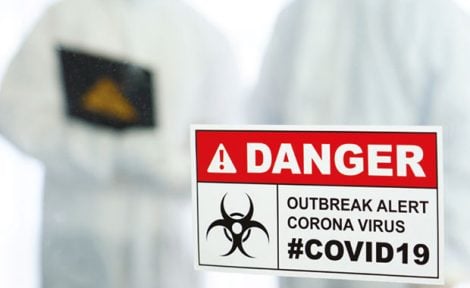Tenants: remember their safety is YOUR responsibility, not theirs
Even with a thousand pieces of legislation, there is, says Frances Burkinshaw, still smoke and still fire, so take care of your tenants!
 You might think that tenants over the age of 18 years are responsible enough to look after themselves.
You might think that tenants over the age of 18 years are responsible enough to look after themselves.
Not so with lettings. In rented accommodation a landlord is responsible for the tenant’s safety. So, when a tenant moves into a property the landlord must ensure that the property is ‘safe’. Depending on the area of safety, the landlord must check the property throughout the tenancy. The tenant is, however, responsible for notifying the landlord of any safety issues which might arise such as faulty wiring, etc. and once notified the landlord must act swiftly.
SOME OF THE SAFETY ISSUES
The Furniture and Furnishings (Fire) (Safety) Regulations 1988 (as amended) gave the industry a real shake-up; all upholstered furniture must meet standards and have a label attached showing that the piece will meet the ‘match’ test and the ‘ignitability’ test. If no label is properly attached then the furniture must be removed. Clearly most furniture these days will comply but it must still be checked as there could be some ‘dodgy’ suppliers. We know how dangerous foam can be when ignited – people die from the harsh smoke rather than the flames.

The Gas Safety Regulations 1998 again had an enormous effect on the lettings industry. Every let property with gas must obtain a gas safety record prior to the letting and again within twelve months thereafter – standard practice in agencies but some landlords still flout this legislation so there are still deaths from carbon monoxide poisoning.
Carbon monoxide is produced by all burnt fuels. As a ‘new girl’ on ARLA Council in the 1990s I was given the job of the safety help line for members. I asked the government department many questions including why the Regulations did not cover all fuels. The answer staggered me – “Other fuels would be dealt with by another government department”! Couldn’t they talk and get it together?
As a ‘country’ agent, many of our properties were not on gas so heating was solid fuel or oil. There is still no legislation making safety records mandatory for these fuels – and still deaths every year.
LEGISLATION
The government had a chance to deal with this with The Smoke and Carbon Monoxide Alarm (England) Regulations 2015 but did not give enough detail. These regulations are very clear and specific. In a let property there must be a smoke detector on every storey which must be checked at the beginning of the tenancy. This could be a battery operated device but it was advisable to have mains interlinking devices on each floor. The tenancy agreement should require the tenant to monitor the alarms and report any problems. There must also be a carbon monoxide detector in any room with a solid fuel appliance; a great move forward but I repeat – what about oil?
The tenancy agreement should require the tenant to monitor smoke alarms and report any problem.
There is also no requirement to have a carbon monoxide detector if the property is served by gas. The argument for this is that the gas is already covered by the 1998 regulations – I disagree! Those regulations require an annual gas safety check… let’s take an example. The property has its regular safety check in January and it passes; in October the heating is turned on again and the appliance is faulty and gives off carbon monoxide endangering the tenants’ lives. This appliance does not need to be checked again until January. What could happen between October and January? All agents and landlords should ensure that there is a carbon monoxide detector installed in all properties with burnt fuel.
The rules for Electricity remain ambiguous and unclear, one of my ‘bugbears’ for years Delegates, on training courses, regularly say “There isn’t any legislation for electrics and the landlords don’t want to spend the money on a safety check…”. There is legislation for electrics, lots of it.
Any property that is ‘hired in the course of business’ must be safe. That statement in itself is self-explanatory and comes from Consumer protection legislation. Plus the Electrical Equipment (Safety) Regulations 1994, plus Building Regulations (Part P), the Defective Premises legislation and more. Recent legislation gave government the right to introduce compulsory safety checks but still this hasn’t been implemented – only for all HMOs (every 5 years). Landlords need to be reminded that they are responsible for tenants’ safety even though tenants are adults.
Next time I will report on two cases illustrating the importance of safety in rented accommodation.
Frances Burkinshaw is an independent trainer available nationally for in-house or group training. 01892 783961 or 07887 714341 or [email protected]





